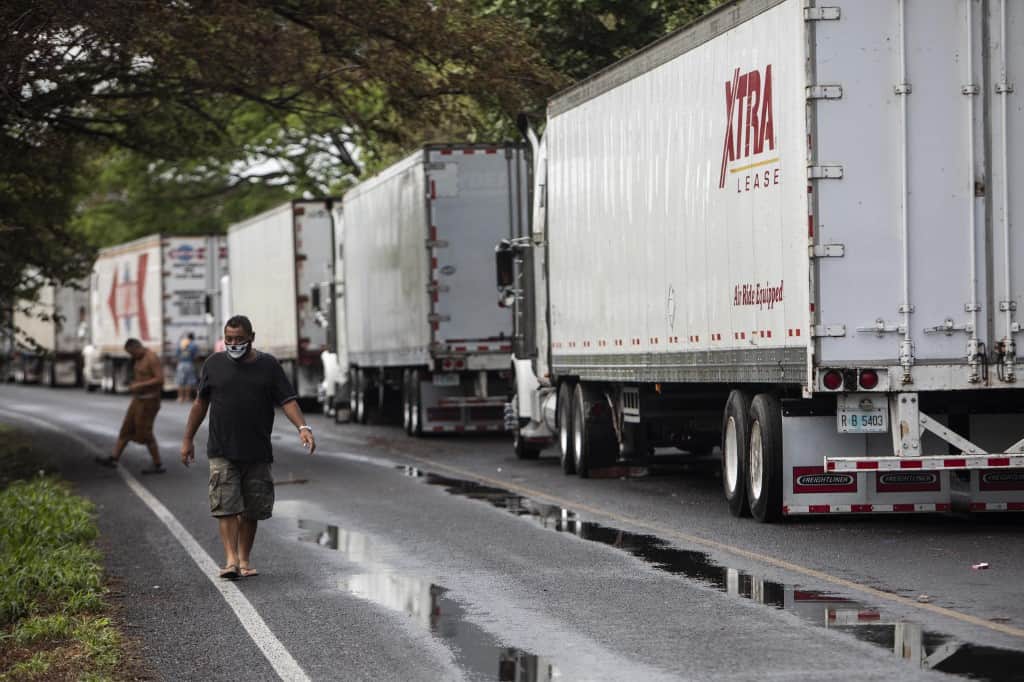The blocking of roads as a way of protesting a grievance used to be a regular occurrence in Costa Rica. In the year 2000, highways throughout the country were blocked for three weeks in the ICE combo protests. This was an early, heavy-handed attempt to privatize the telecommunications arm of ICE, which was still a public company at that time, and most Costa Ricans preferred the status quo.
The fact that the Congress tried to ram it through with little transparency sparked the near month of civil protests. Since then, there have been a number of other blockades for various reasons, with the common denominators being perceived outside intervention in internal matters and distrust of the decisions made in the Costa Rican congress.
Those participating in the blockades were a mix of public service workers, students, truckers and people skeptical of the ruling class. As for the rest of us– the bulk of the private sector, and those less interested in these protests, the reaction was mixed. While the protestors often had good reason to take to the streets, their methods were not so well received. Blocking people from going about their daily business, impeding the right of commerce, with time always served as an aggravation for many. Why make everyone suffer? was a common question.
Why not take the protest to San Jose, to the site of Congress and set up blockades there? Many Costa Ricans supported the blockades, and the protestors knew time was on their side. Eventually concessions would be granted, assurances made and the blockade would be lifted. And in Costa Rica, that’s how it works. As for our neighbors to the southeast? There are street protests, and then there is what has gone down in Panama the past month.
The country has been brought to its knees by thousands of protestors using the time-tested highway blockades. The initial protest was against an agreement with a Canadian mining company. This accord was passed by the National Assembly in record time with little debate, a rubber stamp contract that aroused national suspicion of payoffs and unified various sectors of society against the agreement. The earliest protests in Panama City soon expanded throughout the country, with major arteries blocked to the point that the economy shut down.
By that point in time, the protests were no longer limited to the mining agreement, and now encompassed dissatisfaction with everyday problems such as government corruption, rising crime, inept public services and income inequality.
Panama is a country of stark differences, with the gleaming high rises of Panama City shadowing nearby slums. Between the canal and the country’s position as an international banking center, there is great wealth generated, but the majority see little of it.
This has all come to a head in the past month, with the situation reaching a point so desperate that Costa Rica was actually providing gas and fuel to areas near the border. The economic losses from the month of protests are said to be approaching 2 billion (2,000,000,000) USD. For those who believed Panama to be a relatively middle class and stable country, the events have shaken that outlook.
Then came the actions of a 77-year-old American lawyer expat, who executed two protestors in broad daylight. Videoed from multiple angles, it was a chilling scene.
An angry old gringo, calmly walking to the blockade, exchanging a few words, and then playing judge, jury and executioner, leaving two bodies dead in the road before the police took him away. From here, there is relief that our blockades never reached this magnitude, but fear that they someday could. We live in a world of more people, more money, and more income disparity than ever.
Add the ingredients of government corruption, rising crime, and a ratio of thousands of unhappy and angry people for every new minted billionaire, and you have the perfect storm, only awaiting one event to set off a chain that can paralyze an entire country.






